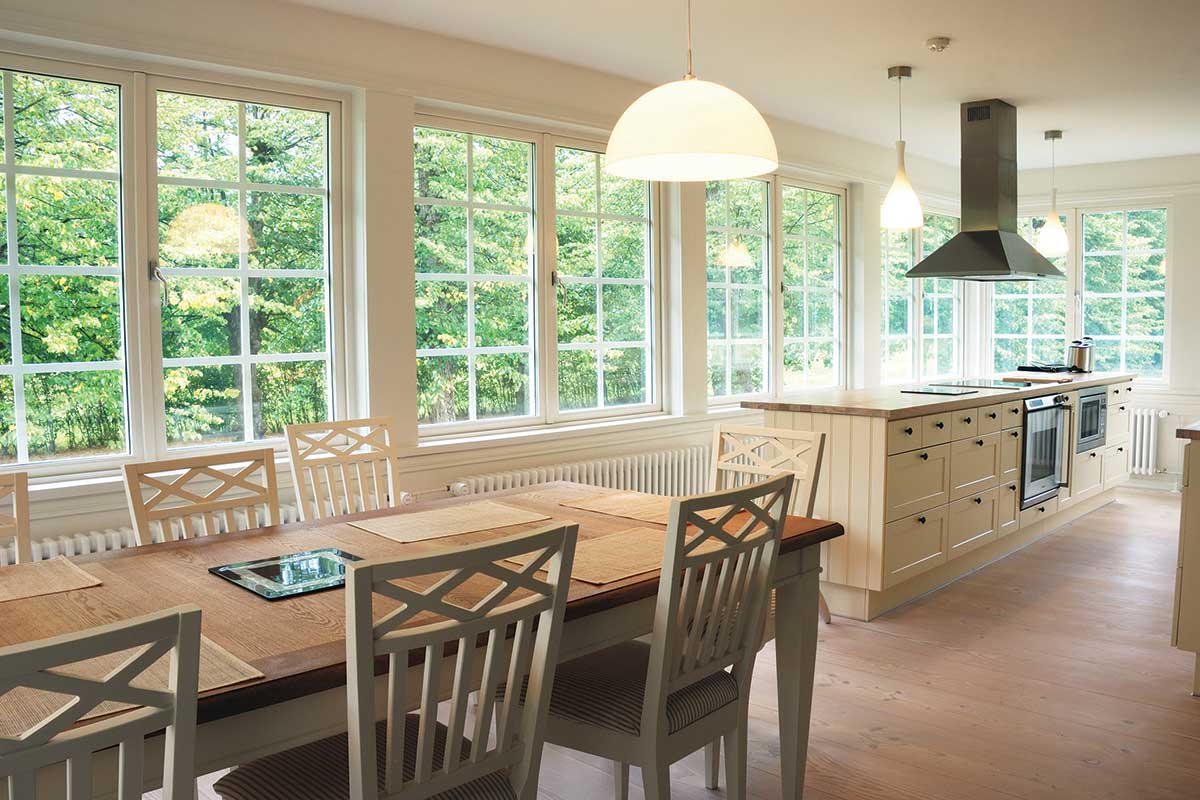If your home’s windows are very old, and if you can feel a chill when you stand near them when the weather is cold, you might consider replacing them. Just be sure to prepare yourself for a bit of sticker shock when you get your first bid for replacing windows. To help you decide if replacement is the right move, you’ll want to consider a few factors.
Increased Comfort
When you’re near a cold surface, such as a window, you can feel chilly even if the temperature inside your home is over 70 degrees. The inside surface of an inefficient, single-pane window will be much colder on a winter night than that of a double- or triple-pane window.
Window coverings are one approach to increasing the comfort level of your home. Curtains and blinds are very effective at reducing radiant heat loss in the winter and can even block some unwanted heat gain in the summer.
Another consideration is the sun. If you have lots of winter sunshine, you should take this into account as you ponder window replacement. Some windows are better at letting the sun’s heat into the home than others.
Appearance and Function
If your windows are older, you may be considering new wood- or vinyl-framed windows for an exterior facelift. But keep in mind that if you own an older home with classic wooden windows, vinyl replacements might look out of place. It’s possible to buy new windows that match the style of some older wooden windows, or you could decide to apply a little elbow grease to get them back into shape. Wooden windows, even if they were built before 1960, can last the life of the home.
If your existing windows don’t open or are hard to clean, replacing them might be your best bet.
Resale Value
Windows are a major point of interest for some prospective homebuyers, which is why we often hear that window replacement is good for resale value. But a 2019 study by the National Association of Realtors found that on average across the U.S., installing new vinyl windows cost about $22,000 per home but increased resale value by only $16,500. Only 4% of realtors said that new windows helped close the sale.
Energy Savings
Companies that sell new windows sometimes advertise greater energy savings than the new windows can actually deliver. The amount of energy you save really depends on the efficiency of your existing windows compared to the efficiency of the replacement windows. An energy auditor can estimate potential savings, but most audits show that there are much more cost-effective energy-saving investments than replacing windows.
On average, according to Energy Star, replacing single-pane windows in a 2,000-square-foot home with Energy Star-certified windows will produce average savings of $125–$340 a year, depending on where you live. At this rate, it would take a decade or more to pay off your initial investment.


